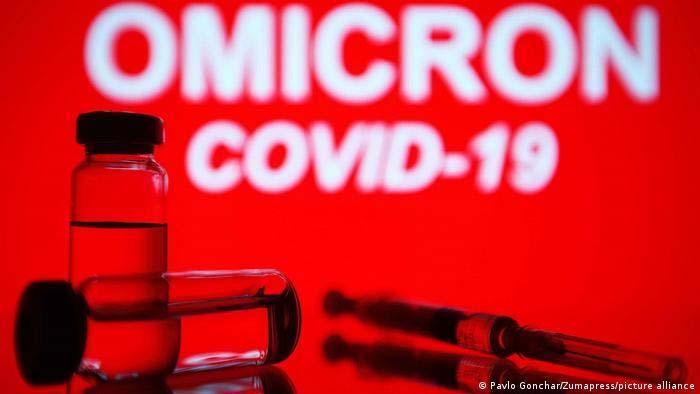The findings of the In-Patient Treatment with Anti-Corona Virus Immunoglobulin (ITAC) study holds lessons for research in Nigeria, as well as benefits for the country’s public health response, especially for COVID-19.
Dr Nnakelu Eriobu, the Principal Investigator of the ITAC study, stated this during an interview with Daily Trust in Abuja.
- NIGERIA DAILY: Your Salary Is Enough To Last You More Than A Month
- Buni c’ttee dilly-dallies on APC convention
The ITAC study, which was recently completed, was a research on COVID-19 treatment conducted by the Institute of Human Virology, Nigeria (IHVN).
The study was an international multi-sized clinical trial that assessed the efficacy and safety of intravenous immunoglobulin treatment in hospitalised COVID-19 patients with mild to moderate symptoms.
The intravenous immunoglobulins are antibodies that are harvested from the plasma of patients who have recovered from COVID-19. They are harvested from their blood and are made to undergo pharmaceutical processes where they are made safe for other humans to use.
The study started globally in November 2020, in 18 countries at 60 sites. IHVN was the only site in Nigeria and Africa as a whole.
Findings from the study, which were recently published in the Lancet Biomedical Journal, revealed that the drug does not improve the patient’s clinical outcome as compared to those who received the placebo or who did not receive the intervention product at all.
Dr Eriobu said the good thing about research, in general, was that it gave concrete knowledge so that the research community and the world could “move to the next phase, the next drug or the next treatment option, and people can learn from it.”
He said the drug was generally safe even though some adverse reactions occurred in some people as was normal with many other drugs.
Dr Eriobu explained that, “But there were mainly mild to moderate reactions. The drug was well tolerated across board in our sites. Most of the patients received the drug and completed the treatment because it was an infusion.
“Efficacy is the other part of it. The efficacy of the drug did not show a significant clinical ability to treat COVID-19, because when we looked at the data, we found out that comparing the clinical outcome with those who received the drug and those who didn’t get the drug (the control arm) – those who received normal saline as placebo – was just the same.
“The drug didn’t reduce hospitalisation time as such. The drug did not improve or speed up the clinical recovery time compared to those who received the placebo. So, from the data we have or the statistical analysis, you cannot recommend such drug, the hyper-immunoglobulin, to be used for the treatment of COVID-19.
“The ITAC study has given us a conclusive information that hyper-immunoglobulin is not effective enough for the treatment of COVID-19; meaning that nobody in the future should go testing hyper-immunoglobulin treatment on COVID-19 patients.”
Asked what was next after the ITAC study, he said IHVN was now involved in a new COVID-19 clinical trial study called TICO – the therapeutics for in-patients with COVID-19 that would be testing multiple drugs.
He said, “ITAC only tested one drug, TICO will be testing multiple drugs to find out which will have safety and efficacy. Efficacy is very important for the treatment of COVID-19. The whole world is still searching for a cure for COVID-19. We have the Remdisivir, but it seems like we are still looking for a drug that is going to be a highly effective, responsive drug for COVID-19, and hopefully, we should get there.”
On how it will help Nigeria’s public health response, especially for COVID-19, Dr Eriobu said, “It is great that Nigeria participated in the study. There are many drugs that we use in the world today, that we use in Nigeria and use in West Africa, and we never participated in their clinical trials. Sometimes, people say this drug worked well in the US; that does not mean that it would work well in Africa, because Africa, West Africans, have not participated in the clinical trial and there are pharmacogenetics in the way drugs are metabolised. There have been increasing calls to involve Africa, West Africa, Nigeria, in clinical trials. This is a good approach.
“This was a global study and findings of studies. When you as a region or a country is involved, you can have concrete data on how these drugs performed in different populations. That is something that everybody is looking out for. So, someday if we continue to participate in global studies like this, and perhaps a cure is found for COVID-19 and any other disease, we can say that the Nigerian population was part of the study; and this is what we found and this is how it responded in the system.”
Dr Eriobu further said, on the other hand, it built our health infrastructure, technical expertise and international collaboration by participating with established institutions and investigators across the globe, and also helped us to grow.
He added that the ITAC study helped put IHVN on the global map as a credible institution that could implement clinical trials.
He explained that, “We collaborated with the University of Abuja Teaching Hospital (UATH). It was a fantastic experience and we all learned on the job. It has also grown our research capacity remarkably because we were able to overcome challenges, use infusion products, work through the challenges of the pandemic – remember we were working even during the lockdown. It is a very interesting experience that has really set the stage or foundation for us to advance clinical trials within the country.”

 Join Daily Trust WhatsApp Community For Quick Access To News and Happenings Around You.
Join Daily Trust WhatsApp Community For Quick Access To News and Happenings Around You.

